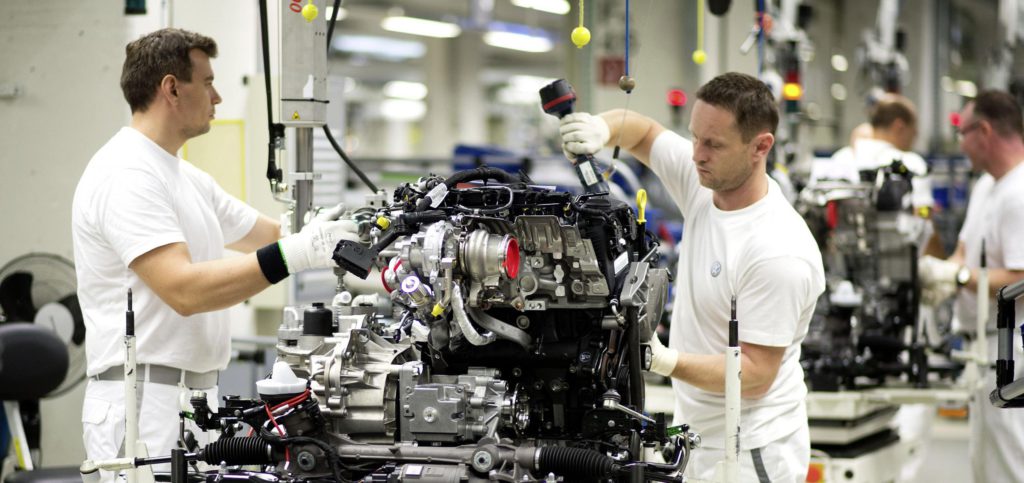UK manufacturing down as WLTP effect bites
30 October 2018

30 October 2018
Vehicle and engine production in the UK dropped in September, as new emissions testing procedures led to a backlog amongst manufacturers.
During the month, 25,610 fewer vehicles rolled off lines around the country, equating to a 16.8% drop in manufacturing. The number of engines coming out of plants also fell, down 9.5% compared to the same period in 2017.
The news caps a turbulent three quarters of the year as trade tensions, model changes and uncertainty over Brexit bite. However, the drop in September can also be linked to the introduction of WLTP, the new emissions test procedure. A number of manufacturers have paused production of vehicles while they await compliance with new standards, especially as the new test procedure can take much longer than the old NEDC test.
Production fell for both the home and overseas markets, down year on year by a respective -19.0% and -16.2%. Exports, however, continued to drive volumes, accounting for eight out of every ten cars produced. In the year to date, overall output has declined by 6.6%, with the decline driven predominantly by falling UK demand, currently down 18.6%, but compounded by slower growth across Europe.
In August, production in the UK dropped 12.9% as manufacturers prepared for the introduction of the new test. In July, production dropped 11%, while in June the decline was just 5.5% and in May the market saw growth of 1.3%, highlighting the impact of the new test as manufacturers start to get closer to the new procedures. At the end of Q2 2018, manufacturing in the UK was down 4.4% and on target to get close to last year’s figures. However, the pivotal Q3, when carmakers needed to look closely at the introduction of WLTP in July, has seen an extra 2.2% decline, taking manufacturing further away from targets.
Mike Hawes, SMMT Chief Executive, comments: ′September’s figures highlight the many competing challenges facing UK Automotive. It has been a turbulent year, and the industry needs stability, something that appears elusive given the lack of resolution to Brexit negotiations. The UK government has recognised the importance of a deal that maintains free and frictionless trade with the EU, but it is up to all sides to deliver this to safeguard the hundreds of thousands of jobs depending on the sector.
′Stability is also needed at home, and a stronger UK new car market would go a long way to boosting manufacturing output. The Chancellor’s Budget next week is the perfect opportunity to stimulate the market, sending consumers and businesses the right signals to encourage the purchase of new cars, which would help bolster economic performance as well as delivering environmental goals.’